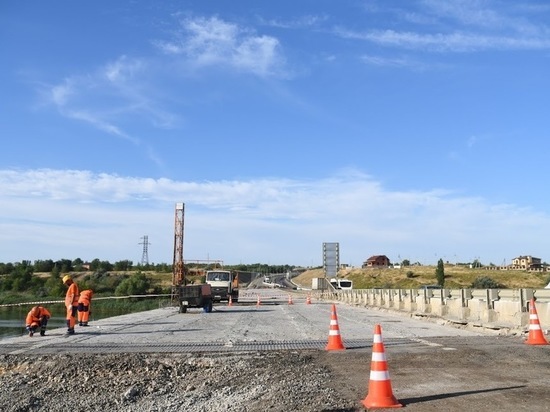
After the May holidays, a round table will be held at the site of the Public Chamber of Russia, within the framework of which supporters and opponents of the approved project for the construction of a highway in the Volga-Akhtubinskaya floodplain will be able to agree on their positions.
Svetlana Kazachenok, a member of the Public Chamber of the Volgograd Region, told MK in Volgograd that the decision to organize a round table was made following a working meeting held on April 15 at the RF OP on the project for the construction of a bridge crossing that will connect bridges across the Volga and Akhtuba rivers and pass through the Volga -Akhtubinskaya floodplain.
Recall that the third start-up complex includes the construction of a road over 14 km long, connecting bridges across the Volga (the first start-up complex) and Akhtuba (the second start-up complex), as well as the construction of bridges in the Volga-Akhtubinskaya floodplain. The project envisages the construction of two bridges across the floodplains and a transport interchange at the exit to Lebyazhya Polyana.
All this will make it possible to redirect the huge transit traffic, from which the residents of the Trans-Volga settlements Hospitalnik, Maslovka, Reshischiy, Burkovsky and others suffer. A large flow, including freight transit transport, creates acute environmental and social problems on the Volgograd-Krasnoslobodsk-Srednyaya Akhtuba highway.
Irina Makanova, head of the department for state policy and regulation in the development of specially protected natural areas of the Ministry of Natural Resources of the Russian Federation, confirmed that the proposed tracing does not pose fundamental threats to the ecosystem of the Volga-Akhtubinskaya floodplain. Nevertheless, the project has opponents from among local activists.
According to the social activist Svetlana Kazachenok, a significant number of local residents support the existing project, since people are well aware that the route is necessary, and cutting down a part of the existing vegetation during its construction will not damage the ecology of the floodplain – this was established during the previous examinations. Moreover, the project provides for a compensatory landing, 11 times the size of the possible felling.
“The existing project is optimal because it was chosen as the most acceptable of the four options,” says Kazachenok. – Today the road passes through the Hospital and a number of villages in the Sredneakhtubinsky district. At the same time, some of the eco-activists, as they call themselves, propose to widen this road and then make a zigzag – two rectangular corners in order to bypass the oak trees, which, according to them, are relict, and in no case should they be cut down.
Meanwhile, as it turned out, the ability of activists to express their position on behalf of all residents of the Volga-Akhtubinskaya floodplain is under a big question. The resonance that arose around this story forced other residents of the floodplain to apply to the Public Chambers of the Volgograd Region and the Russian Federation, who, for the most part, support the construction of the highway within the framework of the approved project. After that, a meeting with numerous supporters of the project from among the residents of the Volga-Akhtubinskaya floodplain took place at the site of the RF OP. Kazachenok, as deputy chairman of the commission for the examination of socially significant bills and legal expertise of the Public Chamber of the Volgograd Region, acted as a co-organizer of this meeting, which took place last week.
“I had to organize two electronic platforms: some of the meeting participants got in touch directly from the floodplain, others spoke from an online platform in the regional Duma,” says Svetlana Kazachenok. – And everyone was categorically against envisaging any new option, since changing the project is a rather expensive and time-consuming procedure, and the money has already been allocated and is in the budget of the Volgograd region. Moreover, people are well aware that the legislatively approved project was not chosen spontaneously: this was preceded by public hearings, meetings with residents and trips to the floodplain. The OP of the Volgograd region created a special working group, including the environmental council at the Public Chamber of the region, which was involved in the examination of the options. As a result, one of the four was chosen, the most sparing.
It should be reminded that the specialists refused the ecologically “bloodthirsty” options, which suggested driving the route along the left bank of the Camel river with a clear cut of the forest. The option, in which the route would pass along the right bank of the erik, also with massive felling of trees, also disappeared.
It was decided to continue the consideration of the issue at the site of the Public Chamber of the Russian Federation in the format of a round table with the participation of supporters and opponents of the existing project.